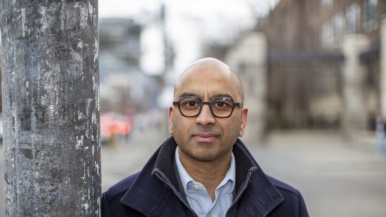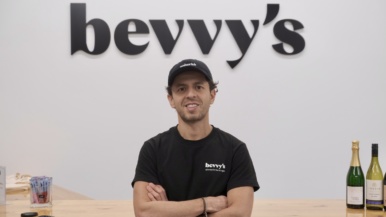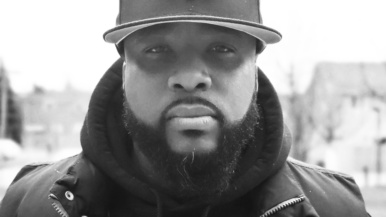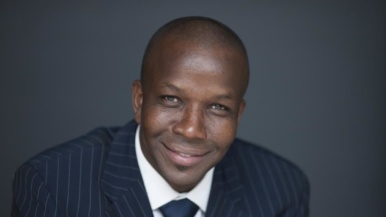Q&A: Dillon Hillier, the rogue Canadian soldier who fought ISIS
In 2014, Dillon Hillier quit his job, bought a plane ticket to Iraq and took up arms against ISIS. His new book, One Soldier, reveals what it’s like to be one of the West’s first rogue fighters

You spent more than five years in the Canadian military, including seven months in Afghanistan. What made you want to return to combat?
I didn’t want to sit back and watch the world burn on CNN. I felt like Canada wasn’t doing enough. The attack on Parliament Hill was also a motivating factor.
Canada doesn’t have troops in Iraq. How did you find a force to fight with?
I posted on a couple of Facebook pages and joined a secret group of about seven Westerners. I wanted to get a platoon of volunteers together and be a dominating force on the battlefield. That never panned out. But I bought my ticket, sent a picture of it to a Peshmerga lieutenant and told him to meet me at the airport.
You spent about three months in Iraq. How did you fund the trip?
I sold my Honda Civic and all my belongings. I had about $2,000 in savings when I was wheels up.
How’d you break the news to your family?
I was sitting in the airport, and I had an email typed up with a whitewashed version of what I was about to do. After I sent it to my dad, my phone started ringing incessantly. My parents were freaking out. I feel bad—my mom was a nervous wreck the entire time I was gone. But I knew that if I didn’t go, I’d regret it the rest of my life.
Your dad, Randy, is an MPP. Did he try to pull any strings to stop you?
At first, he reached out to contacts in the RCMP to try to stop me en route.
You were putting Canada in a difficult position. What if you’d been kidnapped or killed?
I would have been a 24-hour news cycle. Would it have had impact? Would Canada have tried to rescue me? I doubt it.
What happened when you landed?
Customs didn’t speak English. I held up my helmet, flak jacket and combat uniforms and they kept on saying, “Journalist?” I saw some Peshmergas and waved them over. One guy chatted with customs, some phone calls were made, and then we left.
You must have stood out, to say the least. How were you treated as a Westerner?
When I arrived at the Peshmerga base, it was selfie time. Everybody wanted to know who I was. I was treated very well. But the Kurdistan Workers’ Party (PKK), another faction I fought with, didn’t trust me: they looked over my shoulder at my phone all the time; when I used the bathroom, they would linger and follow me.
In your book, you write about fighting with the PKK in a town called Tal Alwad. You killed two ISIS fighters there. Looking back, how do you feel about it?
It doesn’t keep me awake at night, but I didn’t feel great about it. Do I want to kill people? No. Do I want to prevent them from killing and raping and enslaving and torturing? Yeah.
What does keep you awake at night?
In Tal Alwad, my unit was walking through a field. A guy walked out of his house. The PKK immediately shot him. Then his five little girls ran out, screaming. That was hard. The PKK tried to justify it afterward—they made detonator gestures—but it was bullshit. What happens to those kids now? I’ll never know.
After that, did you see much more of the front?
The Peshmerga said I wasn’t allowed in combat anymore. They were getting pressure to take volunteers out of the fight. I got the feeling our government had something to do with it, but I can’t say for sure.
At the moment, Canada is training Peshmerga forces but not directly fighting ISIS. Is that the right strategy?
I have conflicting feelings. I know a Canadian battalion with artillery and a tank squadron could decimate ISIS. But at the same time, I’m not sure we should.
Why not?
Because I’m a non-interventionist.
Really? Volunteering to fight in Iraq sounds pretty interventionist.
That was a personal thing, not a national mission. Should we spend exorbitant amounts of money and get dragged into another 10-year war? No.
What happened when you came home?
I was a wreck. I hit the bottle pretty hard for a few weeks. I broke down and cried in front of my parents. My dad pushed me to do media, and I thank him for it now. That’s how I landed my job.
What job is that?
The chairman of Foundation Markets, an investment firm that incubates start-ups and entrepreneurs, read about me in the National Post and offered me a job. I went in for an interview and he said, “I think you’ll do very well on Bay Street.”
Had you studied finance?
No. I took an exam, so I can sell securities. Right now, I’m helping a cyber-security company raise $4 million. I love it.
So, no plans to fight again?
Another volunteer and I used to joke that if the Peshmerga fought the Iraqi army for an independent Kurdistan, we’d be back. But it would be very hard to leave what I’m doing now—there’s not much that would drag me back into combat.





